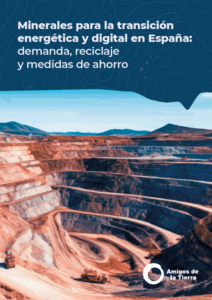The climate crisis is already a reality that forces us to adopt an energy transition, abandon fossil fuels and bet on renewable energies. However, the current political and economic approach of the great economic powers does not lead us to make a just and truly sustainable transition.
Transition plans, in which the private electric vehicle plays a leading role, are generating a sharp increase in the demand for certain metals and minerals. The European Union has joined this global competition and called them critical raw materials. In addition, it is signing strategic agreements with several countries of the Global South to provide itself with its extraction.
These trade agreements are presented as beneficial to both parties, but are based on unequal international relations, since they do not facilitate the energy transitions of emerging countries or their ability to industrialise and benefit from their own resources.
In addition, mining is the most polluting sector and causes serious environmental damage, such as soil degradation, water pollution, loss of biodiversity or greenhouse emissions. It also causes strong social impacts, such as the displacement of communities, conflicts over land use, poor working conditions, effects on public health, lack of transparency in processes, and corruption, among others. Deep-water mining also involves irreversible environmental damage.
→ Made by SETEM Catalunya.
→ With the support ofAmigas de la Tierra
Open English subtitles
Minerals for energy transition and human rights violations

EU responsibility for waste generation

És possible fer una transició justa?
First of all, the waste of resources must be stopped: in the world, 62 million tonnes of electronic waste were generated in, containing critical raw materials, but only 22.3 % was duly recycled.
Secondly, the demand for critical raw materials in the Global North must be reduced by. According to the study published by Amigas de la Tierra, if various measures of circular economy and sufficiency were carried out, could be reduced by 34% of the average demand, and cover up to 67% of this demand already reduced from recycling only. The need for primary mining in mines would thus be reduced by 49%.






